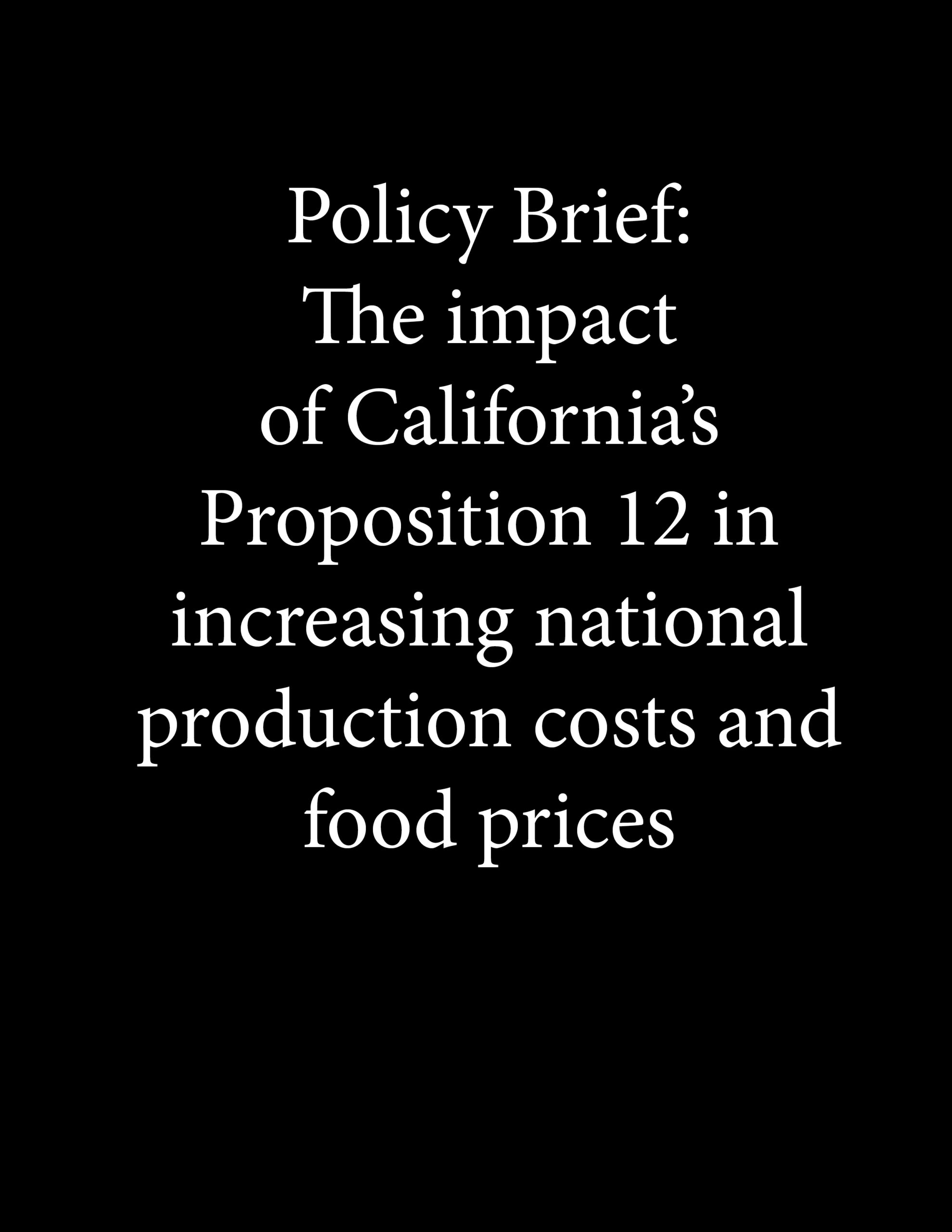In 2018, voters in California passed Proposition 12, called the Farm Animal Confinement Initiative, by a wide margin. The state law established regulations for housing laying hens, veal calves, and hogs whose food products – eggs, veal, and pork – would be sold in California. Additionally, the regulation prohibited the sale of these animal products if the farmer, stock raiser, or seller knowingly housed the animals in a “cruel” manner, as defined by Proposition 12. The housing requirements included cage-free and free-range designs with minimum floor space allowances per animal.
Proposition 12 also included a specific detail forcing adoption of the rules by every other state in the United States: no eggs, veal, or pork could be sold in California – regardless of place of origin – if California’s housing rules were not followed. California used its enormous political influence to impose its rules on producers in other states. Despite the costly housing requirements, egg and veal producers adopted the regulations of Proposition 12 quickly. Pork producers, 99 percent of whom live outside of California, chose to challenge the regulations. After a lengthy legal battle that ended with the United States Supreme Court upholding Proposition 12’s application to other states, the law has now become the standard that pork producers must obey if they want to sell their products in California.

